Diesel fleets will continue to thrive with biodiesel

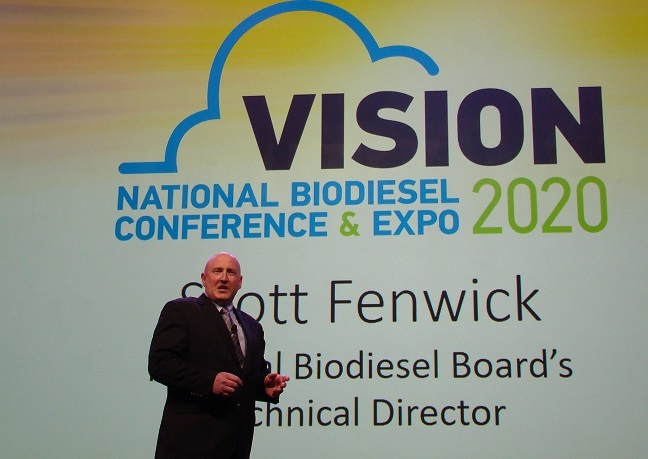
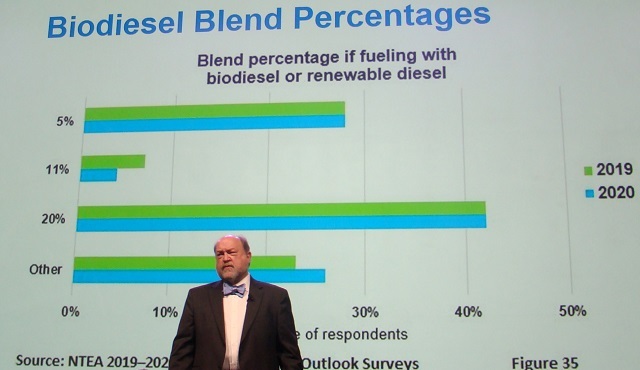
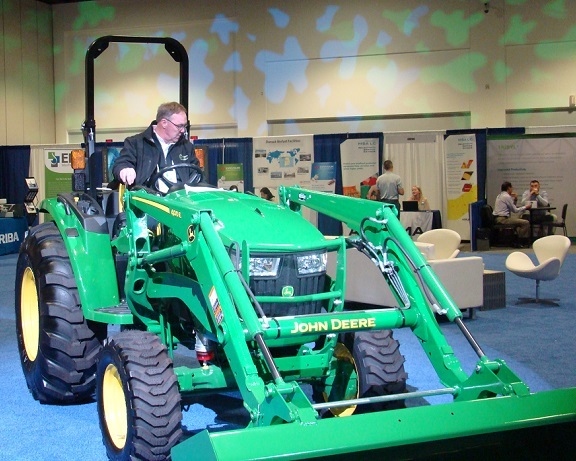
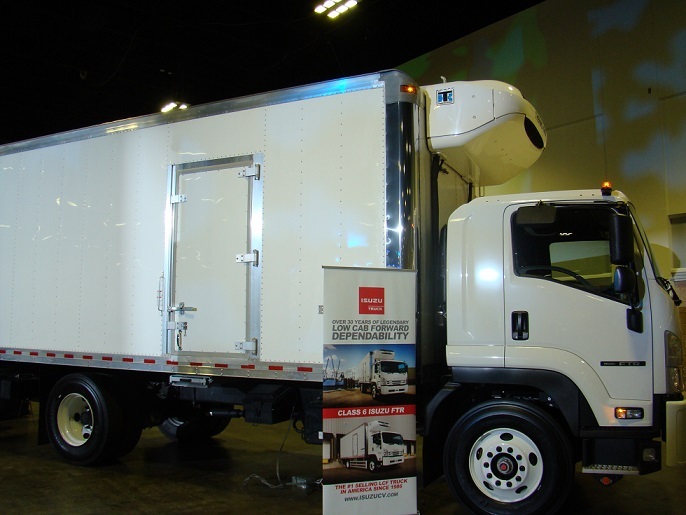
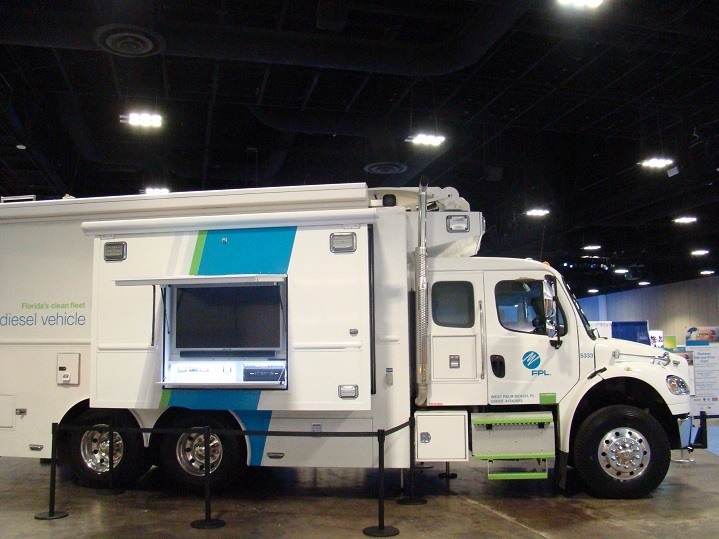
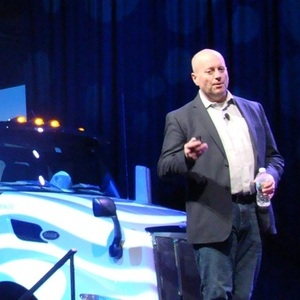
Photo: Ron Kotrba, Biodiesel Magazine
January 21, 2020
BY The National Biodiesel Board
Attendees at the National Biodiesel Conference & Expo received an enlightening glimpse into the future as industry leaders from the Fuels Institute, the National Truck Equipment Association and major OEMs mapped out the road ahead for the freight and transportation industries. New research has revealed that diesel powertrains are expected to remain a dominant force for years to come, and the use of biodiesel blends in diesel equipment continues to be a preferred choice for fleets looking to improve the sustainability of their operations.
Presenting to a packed audience of biodiesel experts, fleets and diesel vehicle enthusiasts at the Tampa Convention Center Jan. 21, John Eichberger, executive director of the Fuels Institute, stated firmly, “Despite what some headlines may have you believe, diesel is not dead—period.”
Fuels Institute forecasts show that diesel vehicle stocks are expected to increase 14 percent by 2035, while diesel vehicle miles traveled are expected to increase 23 percent in the freight transportation industry during the same time period, all while the diesel vehicle fleet is set to become about 30 percent more fuel efficient under new standards.
Advertisement
“Government forecasts indicate that the market for diesel fuel, especially in the freight sector, will remain relatively strong for the foreseeable future with efficiency standards resulting in a slight downward trajectory in demand over time,” Eichberger said. “A consequence of efficiency regulations is that modern engines are much more susceptible to diesel fuel impurities. Therefore, the entire diesel fuel value chain has to work together and remain focused on ensuring fuel quality from production through distribution, storage and use.”
New research previewed Jan. 21 at the National Biodiesel Conference by NTEA—the association for the work truck industry—provided additional context for the use of biodiesel in diesel engines and equipment.
“NTEA’s 2020 Fleet Purchasing Outlook Survey indicates a slight decrease this year in overall vehicle purchases,” said George Survant, senior director of fleet relations for NTEA. “However, the fleet segment has proven in past cycles to be stable and consistent year-over-year. There is increased public awareness and growing commitments from government bodies for improved sustainable fleet efforts. With pressure for fleet operators to improve more than just their new vehicle purchases, a renewed commitment to their legacy fleet performance is also rising. As biodiesel is one of the preeminent solutions for new and legacy fleet operators to use to improve performance, demand should continue to grow in this cycle.”
Biodiesel has consistently ranked as the most widely used alternative fuel option reported by fleet participants in NTEA’s Fleet Purchasing Outlook Survey in four of the past five years.
Advertisement
As biodiesel blends can be used as a cleaner-burning alternative fuel in any diesel engine, the National Biodiesel Board has worked in close partnership with OEMs and other industry partners for more than 20 years to develop strict fuel quality specifications for biodiesel through ASTM International. As new fuel efficiency and emissions standards loom on the horizon for diesel engine and equipment manufacturers, the U.S. biodiesel industry is engaged in a number of ongoing technical projects with OEMs and research institutions to continually improve quality and performance of biodiesel fuel in the diesel engines of yesterday, today and tomorrow.
“The National Biodiesel Board is pleased to work with our OEM and industry partners to optimize the use of biodiesel in the diesel engine technologies available today and in the future," said Scott Fenwick, NBB technical director and chairman of the ASTM D02 committee covering all petroleum products, liquid fuels and lubricants. “Strong partnerships such as these help ensure that diesel engines and biodiesel fuels will remain a dominant force in the freight and transportation industries for years to come.”
Several OEMs are displaying their new 2020 diesel models in a Biodiesel Vehicle Technology Showcase and a Ride-and-Drive event at the National Biodiesel Conference Jan. 20-23. The displays feature an impressive lineup of vehicles supporting the use of B20 biodiesel blends from participants including John Deere, Isuzu Commercial Truck of America, Ford Motor Co. and General Motors, along with several vehicles from Florida Power & Light’s innovative storm recovery fleet powered by B20 sourced from its own biodiesel storage and blending facilities.
The NBB hosts this annual must-attend event to facilitate business, education and networking. The National Biodiesel Conference & Expo is put on with the generous support of industry sponsors. Made from an increasingly diverse mix of resources such as recycled cooking oil, soybean oil and animal fats, biodiesel is a renewable, clean-burning diesel replacement that can be used in existing diesel engines without modification. It is the nation’s first domestically produced, commercially available advanced biofuel. NBB is the U.S. trade association representing the entire biodiesel and renewable diesel value chain, including producers, feedstock suppliers and fuel distributors.
Related Stories
Global digital shipbuilder Incat Crowther announced on June 11 the company has been commissioned by Los Angeles operator Catalina Express to design a new low-emission, renewable diesel-powered passenger ferry.
ATR and French SAF aggregator ATOBA Energy on June 19 signed a memorandum of understanding (MOU) to explore ways to facilitate and accelerate sustainable aviation fuel (SAF) adoption for ATR operators.
Argent Fuels, a leading provider of carbon-saving fuels in the UK, is accelerating its efforts to support a greener future. The expansion of its High Blend Biodiesel will supply to bus, coach, HGV fleets and rail in the south of the UK.
Sprague Operating Resources LLC on June 24 announced it has been selected by the New York City Department of Citywide Administrative Services to supply renewable diesel for its marine fleet, including the iconic Staten Island Ferry.
On June 17, the NYC Department of Citywide Administrative Services and the Department of Transportation announced the start of the Staten Island Ferry’s transition to renewable diesel, marked by the delivery of the first barge of fuel.
Upcoming Events










